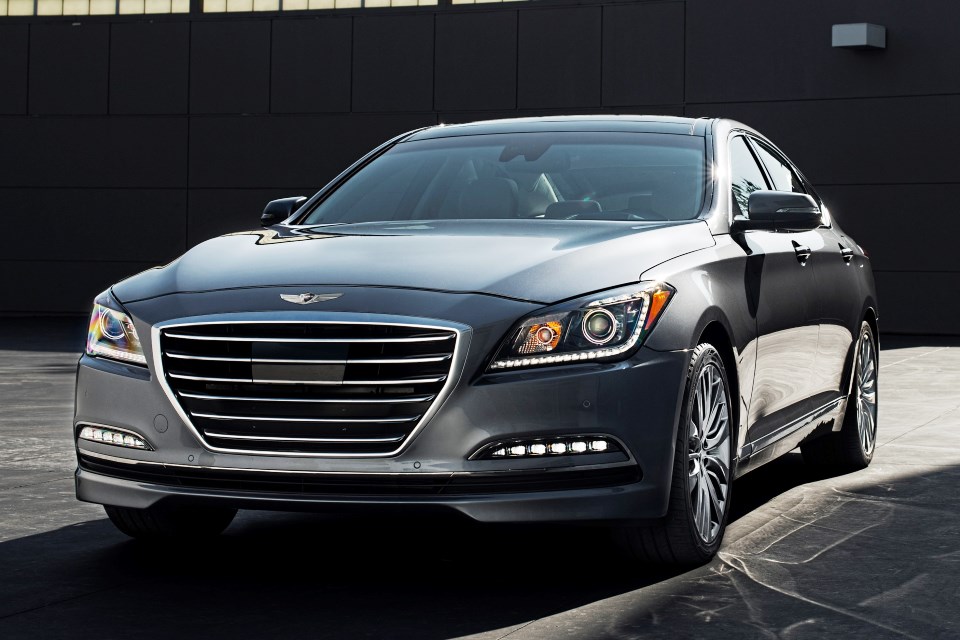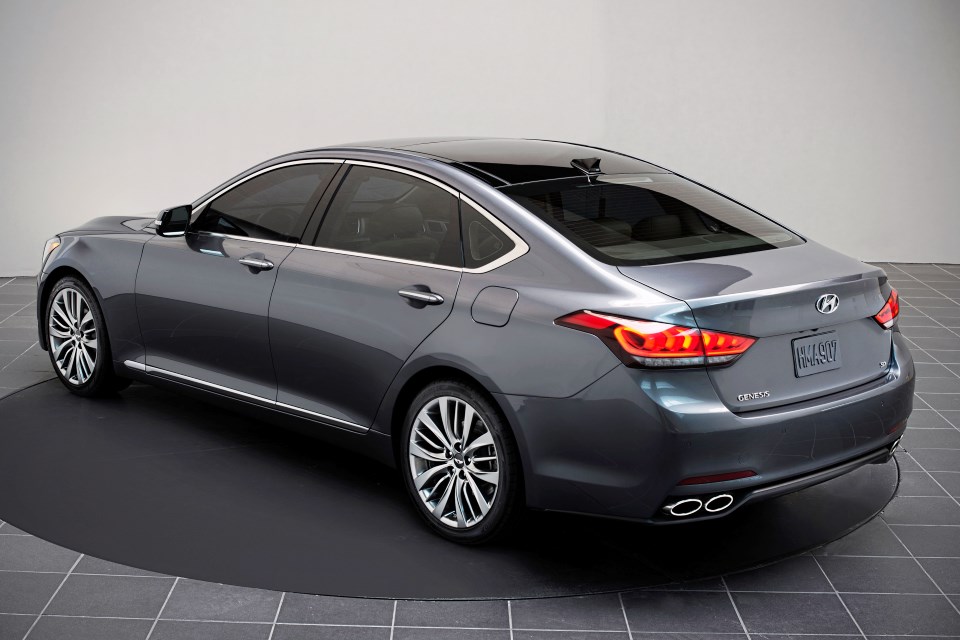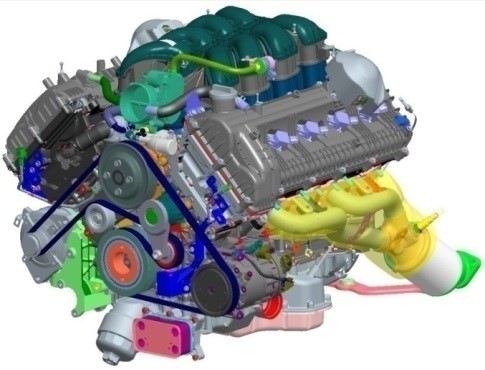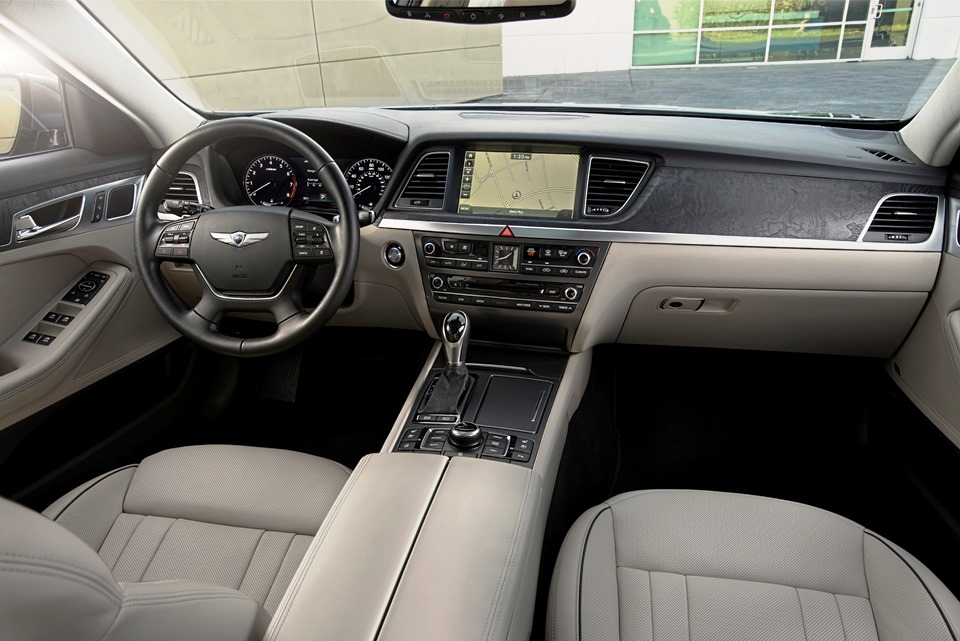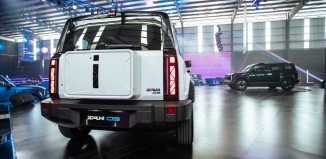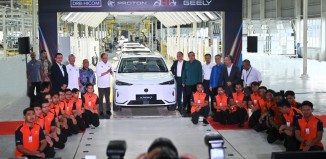Second-generation 2015 Hyundai Genesis debuts in Detroit
Hyundai’s journey up the value chain from making cheap econoboxes to making properly aspirational vehicles continue apace right into the realm of premium vehicles. In 2008, the first-generation Hyundai Genesis marked Hyundai’s entry into the elite club of luxury cars, and the result was a North American Car of the Year accolade in 2009 as recognition of its excellence.
The Genesis’ success in being accepted as a bona fide luxury vehicle is all the more remarkable considering Hyundai never set up a dedicated luxury sub-brand with separate distribution channels to market it. In markets where it is sold, the Genesis sits on the same showroom floor as a mainstream Hyundai. A new Genesis has arrived and, appropriately, it has just been unveiled at the ongoing North American Motor Show in Detroit.
Unlike cars like the Elantra and Sonata which compete against mainstream mass market models, the Genesis is a more ambitious product, competing head on against cars like the Mercedes E-Class and BMW 5 Series. Consequently, the original Genesis was a rear-wheel drive vehicle, and the 2015 model sits on an all-new platform of the same arrangement, but one offered with the option of AWD. There are no shared components with the first-generation Genesis, and Hyundai claims 16% improvement in torsional stiffness and a 40% increase in bending rigidity, supposedly exceeding the BMW 5 Series. By the way, the Genesis has a 52:48 front/rear weight distribution.
Suspension is fully independent all-round and boasts increased stiffness and suspension travel over the previous Genesis, an improvement which Hyundai claims to offer greater wheel articulation and bump absorption over a variety of road surfaces. The reduction in camber angles when turning at speed, meanwhile, is said to result in improved steering feel, 23% less tyre tilt, and increased lateral grip. The range-topping 5.0-litre V8 version adds adaptive dampers.
The Genesis’ new optional HTRAC All-Wheel-Drive is an in-house developed light-weight system capable of multi-mode operation. It features a clutch-operated variable torque splitting system to vary output distribution between the front and rear axles. Hyundai developed this system to broaden the Genesis’ appeal in snow-prone areas.
Two high-capacity naturally-aspirated direct injection engines power the Genesis. Lesser of the two is the 3.8-litre Lambda V6 producing 311hp @ 6,000rpm and 397Nm @ 5,000rpm. Higher up sits the 5.0-litre Tau V8 with a more potent 428hp @ 6,000rpm and 519Nm @ 5,000rpm. Both engines are highly-advanced and are paired with Hyundai’s newly-developed in-house 8-speed automatic transmission, mounted longitudinally like its engines. The transmission incorporates paddle-shifters as standard.
The lengthy list of safety equipment starts with nine airbags, electronic stability control, and anti-whiplash front head restraints. More advanced intervention come in the form of lane departure warning (LDWS), blind spot warning, autonomous emergency braking (AEB – a Euro NCAP 5-star prerequisite), and active cruise control. The latter two systems share the same array of sensors and forward camera for their system inputs to detect stationary objects ahead to stop for.
Meanwhile, the rear blind spot warning sensors offers two applications – Lane Change Assist (LCA), which detects oncoming vehicles from the rear on the lane which the driver intends to enter, and Rear Cross-traffic Alert (RCTA), which detects approaching vehicles when reversing out of parking spots.
Another notable feature is the Genesis Smart Trunk system, which takes hands-free trunk release operation to a new level. Just as Ford’s marketing team has familiarized Malaysians to the concept of aiming a kick under the bumper to automatically operate rear hatch/trunk, Hyundai goes one step further by having the Genesis’ trunk open automatically if it detects the key fob inside a pocket or purse within close proximity of the boot for more than three seconds.
The new Genesis will be built at Hyundai’s Ulsan, Korea plant, with US sales beginning in the spring.
KON
Pictures: Official Hyundai release.




